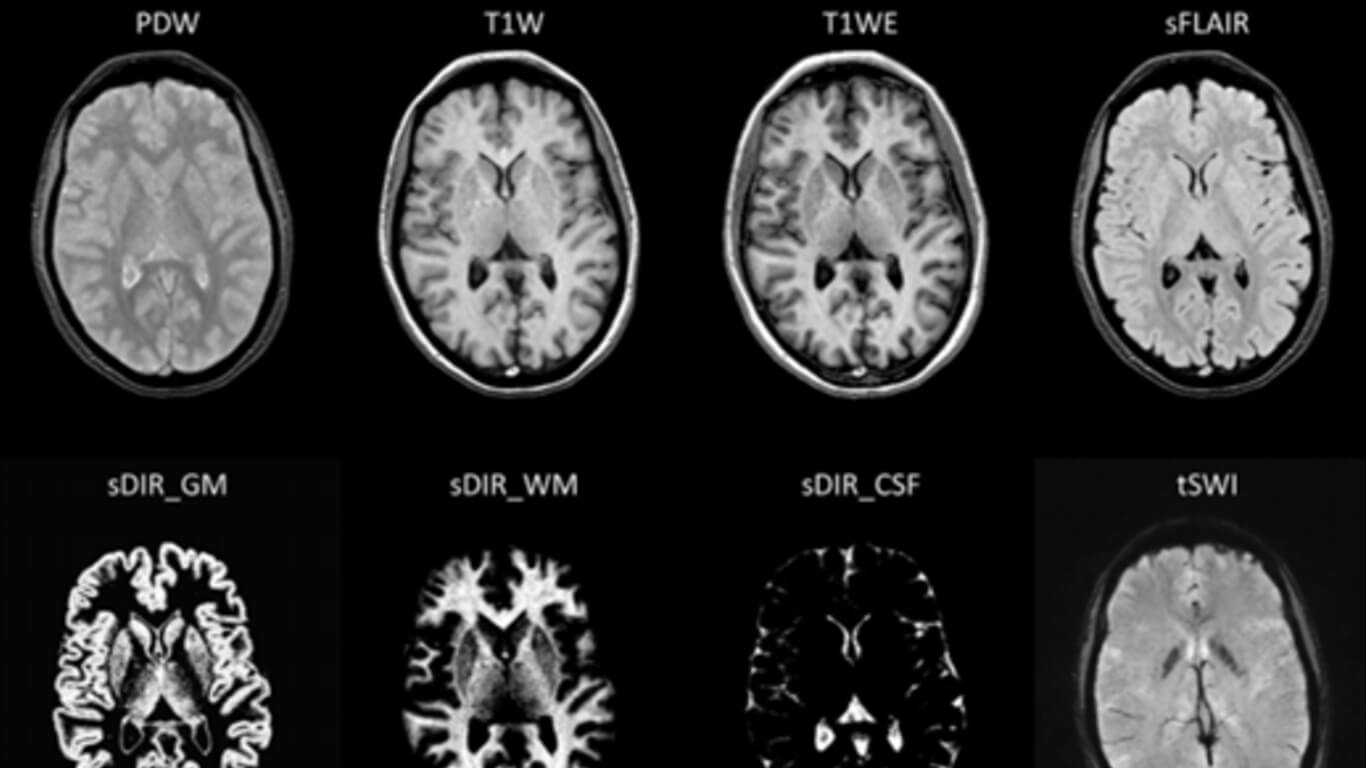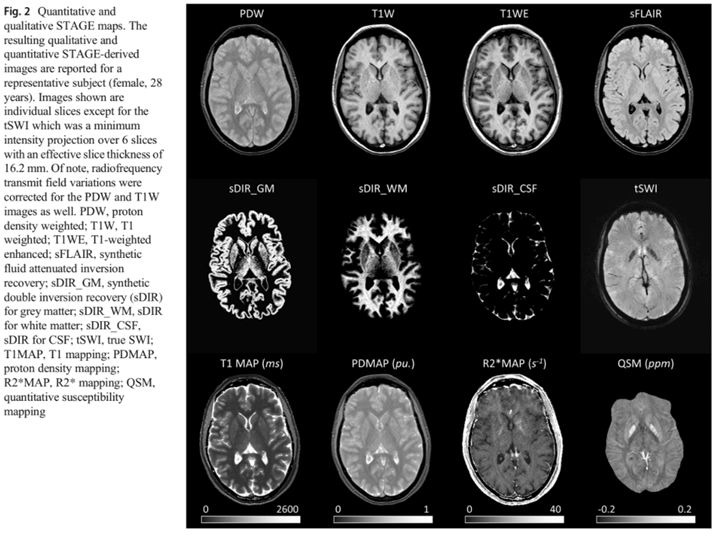
Quantitative MRI using STrategically Acquired Gradient Echo (STAGE): optimization for 1.5 T scanners and T1 relaxation map validation
By: Karen Holzberger, President & CEO of SpinTech MRI
Author(s): Alice Pirastru1 & Yongsheng Chen2 & Laura Pelizzari1 & Francesca Baglio1 & Mario Clerici1,3 & E. Mark Haacke2,4,5,6 & Maria Marcella Laganà1
Journal: European Radiology
Published: 2021
Read Full Paper: https://link.springer.com/article/10.1007%2Fs00330-020-07515-z
Abstract

The strategically acquired gradient echo (STAGE) protocol, developed for 3T scanners, allows one to derive quantitative maps such as T1, T2*, proton density, and quantitative susceptibility mapping in about 5 min. Our aim was to adapt the STAGE sequences for 1.5T scanners which are still commonly used in clinical practice. Furthermore, the accuracy and repeatability of the STAGE-derived T1 estimate were tested.
Methods
Flip angle (FA) optimization was performed using a theoretical simulation by maximizing signal-to-noise ratio, contrast-to-noise ratio, and T1 precision. The FA choice was further refined with the ISMRM/NIST phantom and in vivo acquisitions. The accuracy of the T1 estimate was assessed by comparing STAGE-derived T1 values with T1 maps obtained with an inversion recovery sequence. T1 accuracy was investigated for both the phantom and in vivo data. Finally, one subject was acquired 10 times once a week and a group of 27 subjects was scanned once. The T1 coefficient of variation (COV) was computed to assess scan-rescan and physiological variability, respectively.
Results
The FA1,2 = 7°,38° were identified as the optimal FA pair at 1.5T. The T1 estimate errors were below 3% and 5% for phantom and in vivo measurements, respectively. COV for different tissues ranged from 1.8 to 4.8% for physiological variability, and between 0.8 and 2% for scan-rescan repeatability.
Conclusion
The optimized STAGE protocol can provide accurate and repeatable T1 mapping along with other qualitative images and quantitative maps in about 7 min on 1.5T scanners. This study provides the groundwork to assess the role of STAGE in clinical settings.

